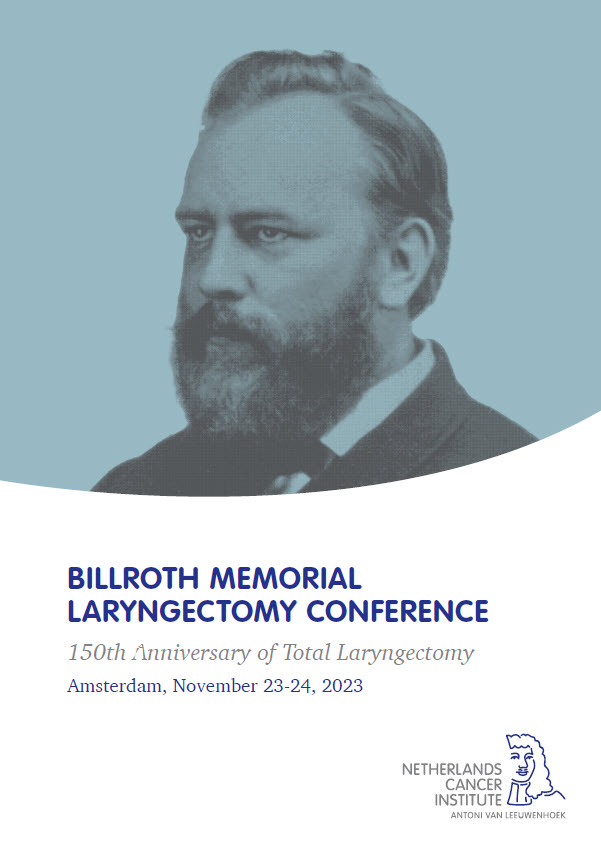150th Anniversary of Total Laryngectomy
Amsterdam, 23-24 November, 2023
Theodor Billroth was born on April 26 1829 in Bergen on the island Rügen in the former Kingdom of Prussia, currently northeast Germany. He attended high school in Greifswald where he obtained his Abitur degree in 1848. Billroth was very interested in playing music and spent much of his time practicing piano. Heavily doubting between a career as a musician or as a physician, he finally opted for studying medicine at the University of Greifswald to study medicine. He completed his medical doctorate at the Frederick William University of Berlin in 1852.
From 1853 to 1860 Billroth was an assistant at the Charité in Berlin in Bernhard von Langenbeck’s surgical clinic. After his surgical training, he accepted the position of director of the surgical hospital and clinic at the University of Zurich.
Seven years later he became Professor of Surgery at the University of Vienna and Chief of the Second Surgical Clinic at the Vienna General Hospital where he developed groundbreaking new surgical techniques, which would change the surgical world forever:
In 1872, he was the first to conduct a resection of a part of the esophagus followed by primary closure.
In 1873, he performed the first laryngectomy, completely excising an advanced larynx carcinoma and restoring the voice by an internal artificial larynx.
In 1876, he was the first in excising a rectal cancer.
From 1881 onwards, Billroth had made abdominal surgery almost a common type of surgery, which led to the first successful resection for antral carcinoma in the same year.
For 150 years, the total laryngectomy has preserved its place as the primary surgical solution for patients suffering of advanced larynx cancer or as a salvage procedure for patients with recurrent disease after organ preservation treatment.
This conference is celebrating the 150th anniversary of Total Laryngectomy in honor of Prof. Dr. Theodor Billroth (1829-1894) by addressing development of new surgical techniques, major achievements in postlaryngectomy speech and pulmonary rehabilitation, future perspectives of organ preservation therapies and possible benefits of silent speech research.


